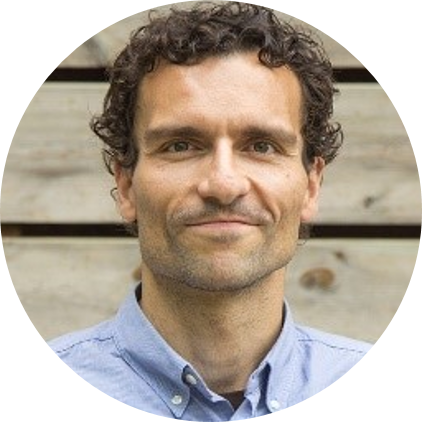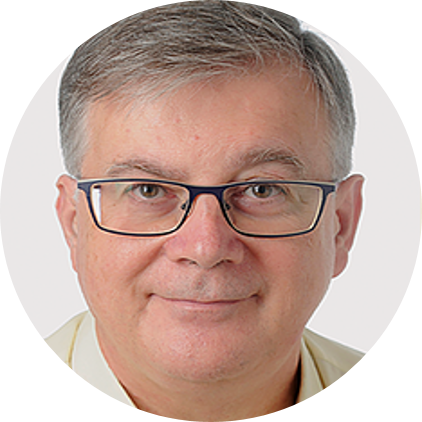
Catalysts Webinar | Recent Advances in Computational Catalysis I
13 January 2021, 00:00
Computational catalysis, Molecular Modeling, Kinetics, DFT calculations, Simulation, Theoretical Modeling, Structure-functional analysis, Quantum Chemistry
Webinar Information
3rd Webinar Series on Catalysts - an Open Access Journal
Recent Advances in Computational Catalysis I
Computational catalysis has been one of the most dynamic research fields over the last decade, and it now represents a critical tool for the analysis of chemical mechanisms and active sites. The growth in this area has been accelerated by steady improvements in computational speed and the maturation of robust software tools, providing opportunities for more realistic models and the application of powerful analysis techniques. As the field of computational catalysis continues to expand, the gap between a model and reality is beginning to narrow. More effort is now focused on capturing secondary effects (structural defects, solvation environment, deactivation events, thermal distortions, etc.), extending the time scales, and incorporating machine learning and descriptor-based methods for catalyst screening.
Chair: Prof. Dr. C. Heath Turner
Date & Time: 13 January 2021 9:00 am CST | 4:00 pm CET
Webinar ID: 839 6540 1279
Webinar Secretariat: catalysts.webinar@mdpi.com
The following experts will present and speak:
|
Prof. Dr. C. Heath Turner |
Prof. Turner completed his Ph.D. in Chemical Engineering from NC State University. He spent several years in industry with Monsanto, Birmingham Steel, and Trinity Consultants. He joined The University of Alabama as an assistant professor in 2003, and he is now a Professor and the Department Head of Chemical and Biological Engineering, and Director of the UA Poly-SM Initiative. Over the past few years, he has been a visiting Faculty Fellow at NASA-Langley, the Naval Research Lab, and the Air Force Research Lab, Visiting Professor at Vanderbilt University, and an International Distinguished Professor at Shanghai University of Engineering Science. His current research is focused on developing kinetic Monte Carlo (KMC) simulation techniques for extending the time and length scales of atomistic simulation models for catalytic systems. This involves applications to catalysis, electrocatalysis, and tribochemical reactions. |
|
Dr. Dominic Alfonso |
Dr. Dominic Alfonso is a GS-15 Research Physical Scientist at the US Department of Energy National Energy Technology Laboratory (NETL), and is currently a member of the Computational Materials Engineering team. He received a B.S. in Chemistry from the University of the Philippines and a Ph.D. in Chemistry from Ohio University. Following postdoctoral works at the International Center for Theoretical Physics, University of Louisville, the Pacific Northwest National Laboratory and University of Pittsburgh, he joined NETL in 2002. His research involves the implementation of computational techniques based on classical thermodynamic and kinetic theories, using ab initio calculated training sets to predict catalytic and materials properties. His specific areas of interest include heterogeneous catalysis and electrocatalysis, with the ultimate goal of understanding and designing materials with energy applications. He is a recipient of the 2010 Pittsburgh Federal Executive Board Silver Award for Contribution to Science and a co-holder of two US patents on nanomaterials for CO2 conversion. |
|
Dr. Albert Poater |
Dr Albert Poater (1979) finished his Ph.D. in Chemistry in 2006, supervised by Miquel Duran and Miquel Solà, at the University of Girona. After periods in Chile with Alejandro Toro-Labbé, in Montpellier with Odile Eisenstein, and a long postdoctorate at the University of Salerno with Luigi Cavallo, in 2010 he became an independent researcher as Ramón y Cajal and JIN in Girona, as well as a Visiting Researcher at KAUST in Saudi Arabia, and worked with Remi Chauvin at LCC-CNRS in Toulouse. As a whole, Dr. Poater has published over 200 papers, collecting nearly 8000 citations (H = 50), on DFT calculations on the mechanism of inorganic and organometallic catalysis, and predictive catalysis by tools to describe the reactivity. His computational research includes work on olefin metathesis by Ru-based catalysts or gold chemistry to undertake organometallic reactions, and is currently switching to green chemistry intended to remove and/or not generate CO2, using either water oxidation catalysis or alcohol’s transformation to aldehydes with the generation of H2 as the energy source. He serves as Editor and Board Member of several journals, and in 2019 he received the ICREA Academia Award. |
|
Prof. Dr. Fernando P. Cossío
|
Fernando P. Cossío studied chemistry at the Universidad de Zaragoza (Spain) and received his Ph.D. in 1986 at the University of the Basque Country (UPV/EHU, Spain, Prof. C. Palomo). After a postdoctoral stay at CNRS (Talence, France, Dr J.-P. Picard), he joined the UPV/EHU as Profesor Titular in 1988 and Catedrático in 2002. In 1994, after a short stay at UCLA in the laboratories of Prof. K. N. Houk, he decided to combine theoretical and experimental organic chemistry to investigate the origins of selectivity in chemical reactions. The author of ca. 250 publications, his research interests include pericyclic reactions, C–C bond-forming reactions, and medicinal chemistry (design and chemical synthesis of inhibitors of integrins and epigenetic enzymes). Recently, he has started a research project on the design and chemical synthesis of bicolor fluorescent probes for monitoring neutrinoless double beta decay nuclear reactions. At present, F. P. C. is the Scientific Director of Ikerbasque, The Basque Foundation for Science. |
Program
The webinar will start at 9:00 am (CST) 13 January 2021 and will last maximum 1 hour and a half.
|
Presentation |
Time |
|
Prof. Dr. Turner Introduction |
9:00 am (CST) | 4:00 pm (CET) |
|
Dr. Alfonso CO2 Recycling on Ligand‐Protected Nanoparticles: The Role of Structural Inhomogeneity in the Promotion of the Electrocatalytic Process |
9:05 am (CST) | 4:05 pm (CET) |
|
Dr. Poater Computers Towards Green Chemistry |
9:25 am (CST) | 4:25 pm (CET) |
|
Prof. Dr. Cossío Searching for Huisgenases: Computational and Experimental Studies on Bioctalytic (3+2) Cycloadditions |
9:45 am (CST) | 4:45 pm (CET) |
| Q&A |
10:05 am (CST) | 5:05 pm (CET) |
Registration
In order to attend the webinar, please register by clicking on the button below.

This is a FREE webinar. The number of participants to the live session is limited but the recording will be made available on Sciforum shortly afterwards. Registrations with academic institutional email addresses will be prioritized. People can send in their questions by email to catalysts.webinar@mdpi.com.
Webinar Content
To stay updated on upcoming Catalysts webinars organized by MDPI, be sure to sign up for our newsletter by clicking on “Subscribe” at the top of the page.
Relevant Special Issues
10th Anniversary of Catalysts: Achievements in Computational Catalysis Techniques and Applications
Guest Editors: C. Heath Turner and Tibor Szilvási
Accepting submissions until 15 July 2021
Organocatalysis: Mechanistic Investigations, Design, and Applications
Guest Editors: Cristina Trujillo
Accepting submissions until 31 March 2021
Novel Catalysts in Organic and Organometallic Chemistry: Synthetic and Mechanistic Aspects
Guest Editors: Fernando P. Cossío
Accepting submissions until 15 April 2021
Experiments and Modeling in Heterogeneous Electrocatalysis
Guest Editors: Dominic Alfonso
Accepting submissions until 30 April 2021
Studies on Catalytic Reaction Kinetics and Reactor Design
Guest Editor: Myung-June Park and Kee-Youn Yoo
Accepting submissions until 31 August 2021
Mechanism/Kinetic Modeling Study of Catalytic Reactions
Guest Editor: Maria Jaworska and Piotr Lodowski
Accepting submissions until 15 September 2021










